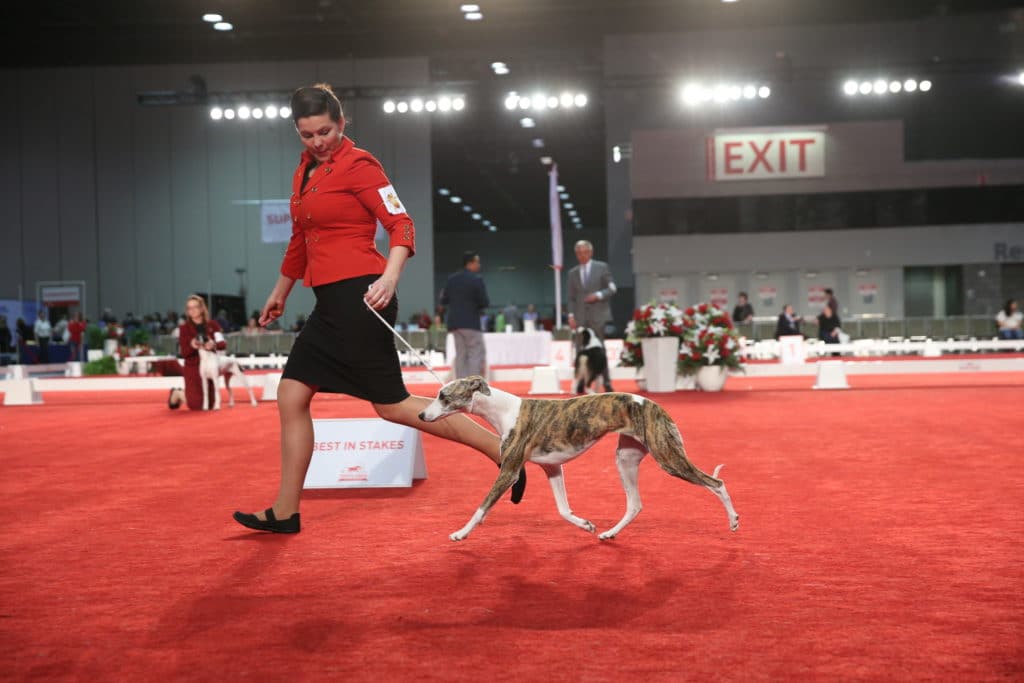Registration of dogs with kennel clubs is a pretty big deal in pet ownership.
A pedigree dog enjoys certain privileges over her counterparts with no registration. For instance, she can participate in dog competitions and shows.
Most importantly, registration proves that the dog is purebred and has a long traceable bloodline.
For breeders, a pedigree mutt creates trust with clients and fetches a good price in the market.
The American Kennel Club (AKC) is the most popular in the dog world. A huge chunk of breeders and dog owners are always looking to register their pets with the AKC.
However, sometimes you come across a dog that is registered with another organization called the Continental Kennel Club (CKC).
The question is: is there a way you can register such a dog with the AKC?
Well, this guide provides a detailed answer to this question below.
What Is The Difference Between the AKC and the CKC?

Both the AKC and the CKC are reputable and popular kennel groups in the United States.
The former has been around for over a century (it has been advocating for purebred dogs since 1884) and is thus the most respected.
The AKC is also the largest registry and a non-profit one.
For the first four or so decades since inception, the organization was busy laying down rules governing the raising of purebred dogs in America.
Now they organize myriad events and activities surrounding the showcasing of purebred dogs. These include the AKC/Eukanuba National Championship and the Westminster Kennel Dog Show.
In addition to organizing dog events, the AKC also uses modern technology, especially DNA testing to find out whether a dog is truly purebred or not.
They only register dogs whose parents are also registered with them. The Puppy to be registered should also come from an AKC-registered litter as well.
Other rules include the following:
- The dog must be purebred meaning both parents should belong to the same breed
- The dog should belong to one of the 177 breeds recognized by the AKC
- Both parents of the puppy should be registered by the AKC
- The litter from where the puppy comes from must be AKC-registered as well.
On the other hand, the Continental Kennel Club is a rather new registry that was established in 1991 in Louisiana as a way to fill in the gaps left by the AKC.
Its rules are pretty lenient. As long as the mother of the puppy is CKC registered and the father is from a CKC-recognized institution, you can get them registered with the CKC. This means that the kennel club can register mixed breeds.
By not adhering to strict rules and a closed policy of registration, the CKC discourages inbreeding and ultimately the presence of genetic disorders among dogs.
It gives a provision for the expansion of the gene pool and hence good quality dogs.
Can you register a CKC dog with the AKC?

CKC is great and all but most parents aim for AKC registration as it is more popular and reputable.
If you already have a CKC dog, you may wonder if you can sign them up for AKC registration.
Well, unfortunately, the AKC doesn’t recognize the CKC. This doesn’t come as a shock since the AKC and CKC’s rules differ by a huge margin.
For one, the CKC allows registration of mixed breeds while the AKC only deals with purebred doggies. Because of this alone, it would beat logic for the AKC to register dogs from the CKC.
There are also plenty of rules set by the AKC that CKC doesn’t particularly follow.
With that said, you can register your doggie with the AKC Canine Partners program if it is a mixed breed.
Alternatively, you can go for AKC’s Purebred Alternative Listing (PAL) program.
Granted, both of these programs don’t offer all the benefits of AKC-registered dogs but you get a few privileges.
Related Post: How to Register a Dog for the First Time (in the US)
What about the Canadian Kennel Club?
CKC can also mean the Canadian Kennel Club which is a Toronto-based kennel group. It is also pretty old as it was founded in 1888.
Dogs that are registered with this kennel group can become registered with the AKC if they have all the papers and meet their qualifications.
The two organizations work closely with each other and follow pretty much the same rules and regulations of registering dogs.
Can You Breed CKC and AKC Together?

In the case of the Continental Kennel Club, you can breed both CKC and AKC dogs.
The only issue is that you will not be able to register the offspring with the AKC.
The reason is simple: the AKC doesn’t really recognize the CKC and will not register a puppy resulting from a CKC dog.
Right from the start, you should keep this in mind. Unless you can register the CKC doggie with the AKC first, forget about having a puppy that is registered with the AKC.
Of course, you can register the puppy with the CKC since the body accepts the AKC. As long as one parent is CKC-registered, you will have zero problems registering your doggie with the CKC.
If you are asking whether you can breed a Canadian Kennel Club dog with an AKC partner, the answer is in the affirmative.
With the right papers of both parents, you can even get the puppy registered with the AKC.
As mentioned before, these two kennel groups work in close contact with each other.
You will first need to register the CKC parent with the AKC before breeding. Once the puppy is out, you can approach the AKC with the right papers to register her.
Closing Thoughts
The AKC and CKC are two of the leading dog kennel groups in the US.
For parents and breeders who care about pedigree dogs, these are the go-to organizations. But each one has its set of rules and regulations of operations.
The truth of the matter is that you cannot register a Continental Kennel Club dog with the AKC.
On the flip side, you can register a CKC (Canadian Kennel Club) with the AKC if you have all the documents.
Related Posts:
Can You Register A Dog With DNA Test?
How To Register A Dog With AKC Without Papers
As an Amazon Associate, we may receive a small commission from qualifying purchases but at no extra cost to you. Learn more. Amazon and the Amazon logo are trademarks of Amazon.com, Inc, or its affiliates.

